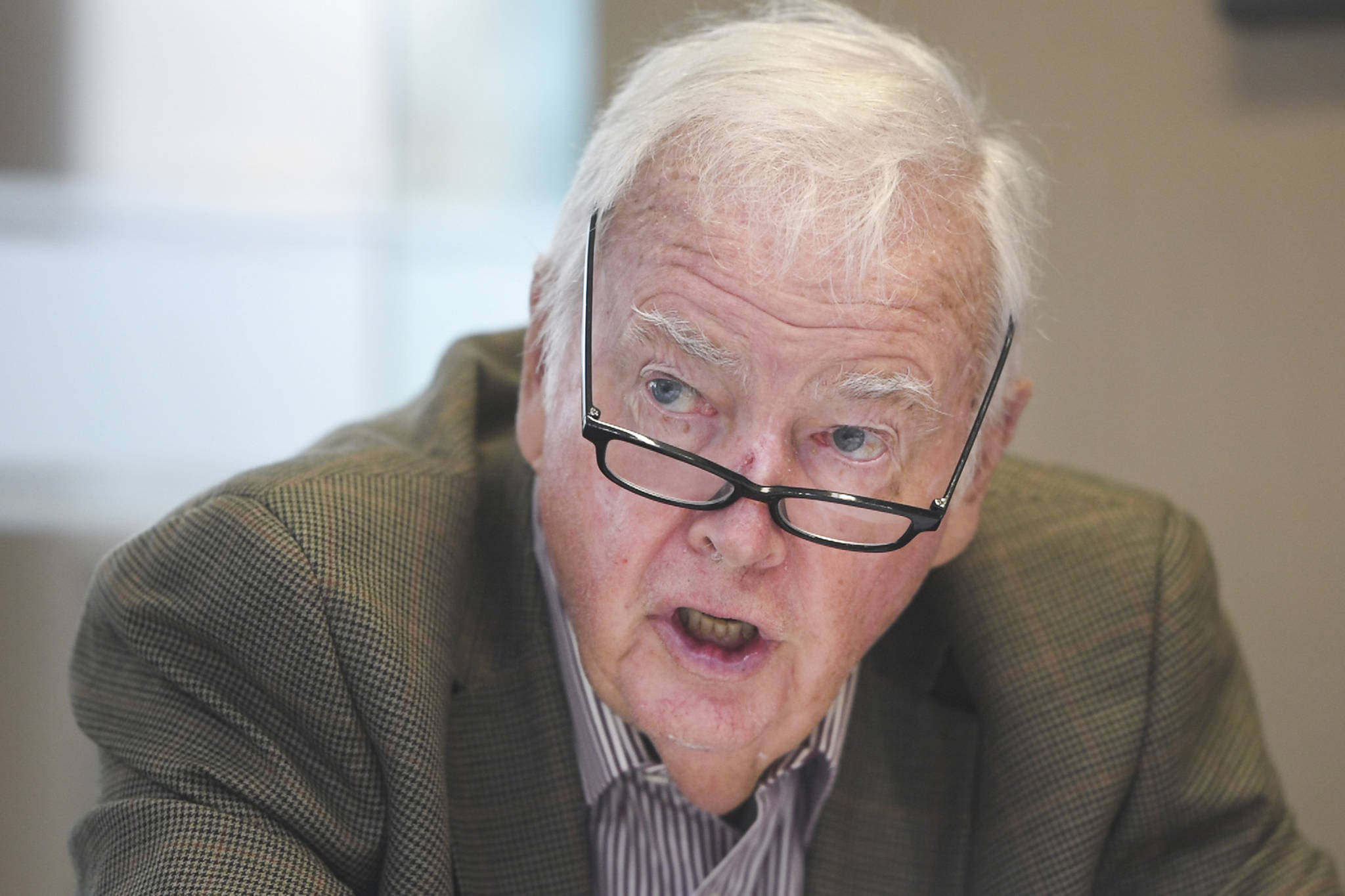The theme of Southeast Alaska Conservation Council Executive Director Meredith Trainor’s recent My Turn is “there is no clamor for expanded logging and logging roads in Southeast; there are just a few outsized voices with access and influence, chasing after an outdated dream.”
There are two recent events by which the accuracy of that claim can be measured.
First, in 2014, SEACC and other environmental groups sued to enjoin the Big Thorne timber sale, which was intended to maintain the last remaining medium-sized sawmill on Prince of Wales Island.
The State of Alaska, Southeast Conference, City of Craig, City of Ketchikan, Ketchikan Gateway Borough, First Bank, City and Borough of Wrangell, Icy Straits Lumber Co., Southeast Stevedoring Corp., Alaska Electric Light & Power Company, Alaska Power & Telephone, Alaska Marine Lines, Inc., Alaska Miners Association, Alaska Forest Association, The First Things First Foundation, Samson Tug and Barge Company, Tyler Rental Inc., Resource Development Council of Alaska, Southeast Roadbuilders, Inc., Boyer Towing, the Federal Forest Resource Coalition, Timber Wolf Cutting, Inc. and Hyak Mining Co. intervened in support of the timber sale “because a continuous and reliable timber supply is a major component of the life blood of communities in Southeast Alaska”:
“Any injunction of the (‘Big Thorne Project’ or ‘Big Thorne’), other timber sales or the 2008 Amended Tongass Land Management Plan (‘2008 TLMP’) will have devastating consequences to the timber industry, the local economy and therefore to the State of Alaska as well.”
[Opinion: Arts and culture integral to Alaska’s rural communities]
SEACC’s request to halt the sale was denied in both Alaska federal district court and the U.S. Court of Appeals for the Ninth Circuit.
Second, over the last few weeks, Alaska’s congressional delegation and Gov. Mike Dunleavy met or spoke with U.S. Secretary of Agriculture Sonny Perdue to request that the Department of Agriculture reinstate its 2003 total exemption of the Tongass National Forest from the 2001 Roadless Rule.
That request was supported by a May 2 letter from the Southeast Conference, the Alaska Miners’ Association, Southeast Alaska Power Authority, the Alaska Forest Association, Alaska Power & Telephone, the Resource Development Council, the Juneau and Ketchikan chambers of commerce, the Alaska Chamber of Commerce, Alaska Electric Light & Power Company, First Things First Foundation and Tyler Rental, Inc.
[Opinion: Stopping ferry service would be ‘destructive’ to Angoon, Southeast]
The letter pointed out that the USDA had identified total exemption of the Tongass as the best alternative during the 2003 rulemaking because:
“The Department has concluded that the social and economic hardships to Southeast Alaska outweigh the potential long-term ecological benefits because the Tongass Forest plan adequately provides for the ecological sustainability of the Tongass. Every facet of Southeast Alaska’s economy is important and the potential adverse impacts from application of the Roadless Rule are not warranted, given the abundance of roadless areas and protections already afforded in the Tongass Forest Plan.”
Although it was set aside by the Ninth Circuit by a 6-5 vote because of a process error in promulgating the 2003 total exemption for the Tongass, the policy reason for exempting the Tongass from the Roadless Rule has not been changed by the USDA.
In short, there is strong support for responsible resource development in Southeast Alaska.
It is worth adding that if we had today the 4,200 timber industry jobs we had in 1990, it would make a major difference in ferry ridership and the overall economy of Southeast.
• Jim Clark is a Juneau attorney who was former Gov. Frank Murkowski’s chief of staff. My Turns and Letters to the Editor represent the view of the author, not the view of the Juneau Empire.

